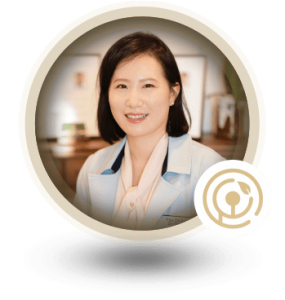Hay fever, also known as allergic rhinitis, affects millions of people worldwide. The constant sneezing, itchy eyes, and congestion can make life miserable, especially during allergy season. While over-the-counter medications offer relief, some individuals seek natural alternatives like acupuncture to manage their hay fever symptoms. In this blog, we’ll delve into the world of acupuncture and how it can help alleviate the discomfort caused by hay fever.
Understanding Hay Fever
Before we discuss acupuncture, it’s important to understand hay fever. Hay fever is an allergic reaction triggered by pollen from trees, grasses, and weeds. When pollen comes into contact with the sensitive lining of your nose and eyes, it can cause a range of symptoms, including:
- Sneezing
- Runny or stuffy nose
- Itchy or watery eyes
- Scratchy throat
- Fatigue
While antihistamines and decongestants can provide relief, some individuals seek a holistic approach to address the underlying causes of their symptoms. This is where acupuncture comes into play.
What is Acupuncture?
Acupuncture is an ancient Chinese healing technique that involves inserting thin needles into specific points on the body. It is based on the concept of “Qi” (pronounced chee), which is believed to be the body’s vital energy. According to traditional Chinese medicine (TCM), when Qi flows smoothly through the body’s meridians (energy pathways), a person experiences good health. Any disruptions or blockages in this flow can lead to illness or discomfort.
Acupuncture for Hay Fever
Acupuncture has gained popularity as a complementary therapy for hay fever.
Here’s how it can help:
- Immune System Regulation: Acupuncture is thought to help balance the immune system. By stimulating specific acupuncture points, it may reduce the hypersensitivity to allergens that causes hay fever symptoms.
- Sinus Relief: Acupuncture can promote sinus drainage and alleviate congestion, which is a common complaint among hay fever sufferers.
- Symptom Reduction: Many people report a decrease in sneezing, itching, and nasal congestion after undergoing acupuncture treatments.
- Stress Reduction: Stress can exacerbate hay fever symptoms. Acupuncture sessions are known for their relaxing effects, which can help reduce stress and improve overall well-being.
- Personalised Treatment: Acupuncture is highly individualised. A trained acupuncturist will assess your specific symptoms and create a treatment plan tailored to your needs.
What to Expect During an Acupuncture Session:
During an acupuncture session
– Thin needles are gently inserted into specific points on your body.
– You may feel a mild tingling or sensation, but the process is generally painless.
– You’ll lie comfortably for about 20-30 minutes while the needles remain in place.
– Most people find acupuncture sessions to be relaxing and soothing.
Conclusion
While acupuncture for hay fever may not be a one-size-fits-all solution, many individuals have found relief from their symptoms through this ancient practice. If you’re considering acupuncture as a natural way to manage hay fever, consult with a licensed acupuncturist to create a personalized treatment plan that aligns with your specific needs and goals. Combined with a healthy lifestyle and other complementary therapies, acupuncture can be a valuable tool in your quest for hay fever relief.






